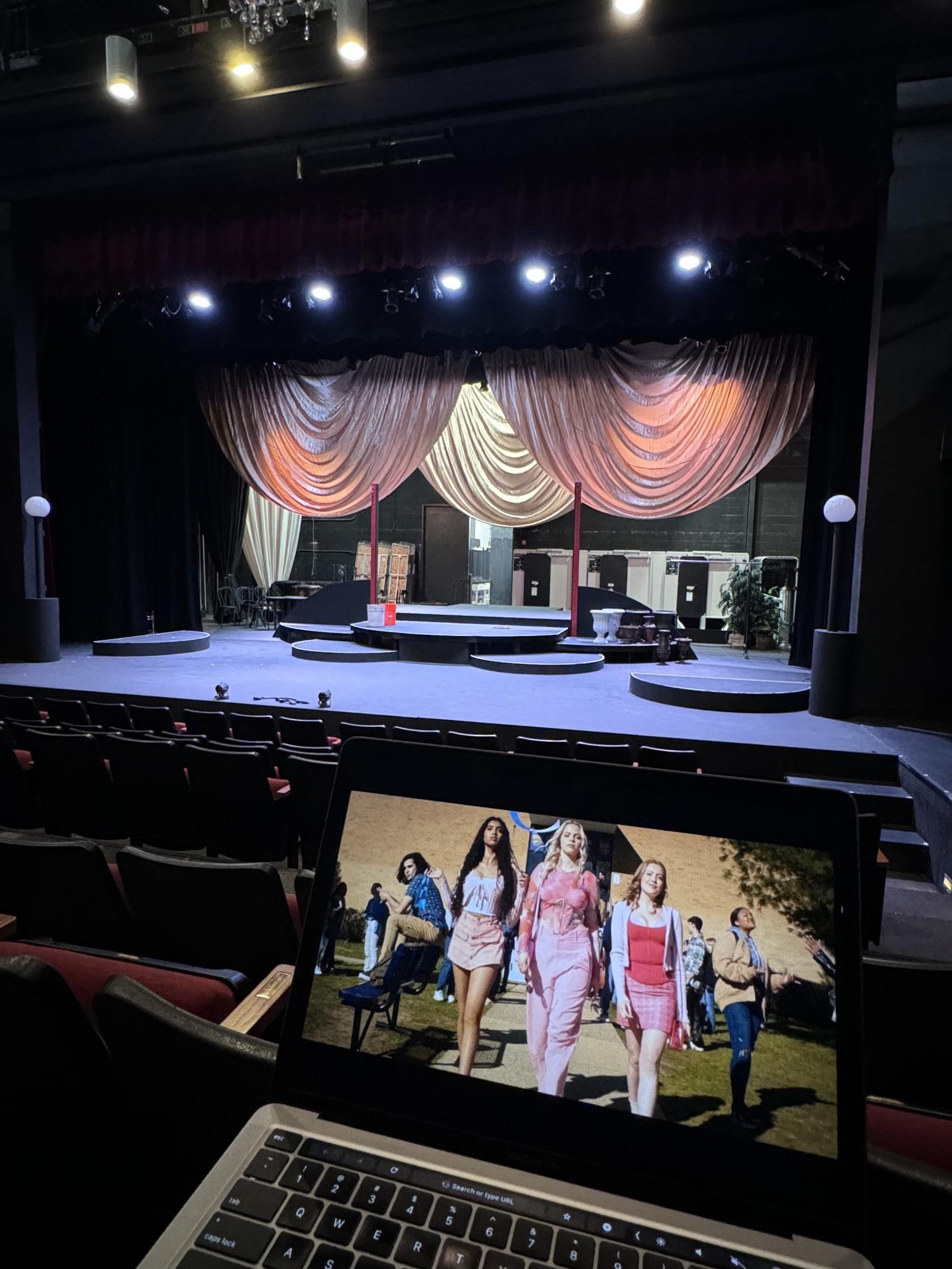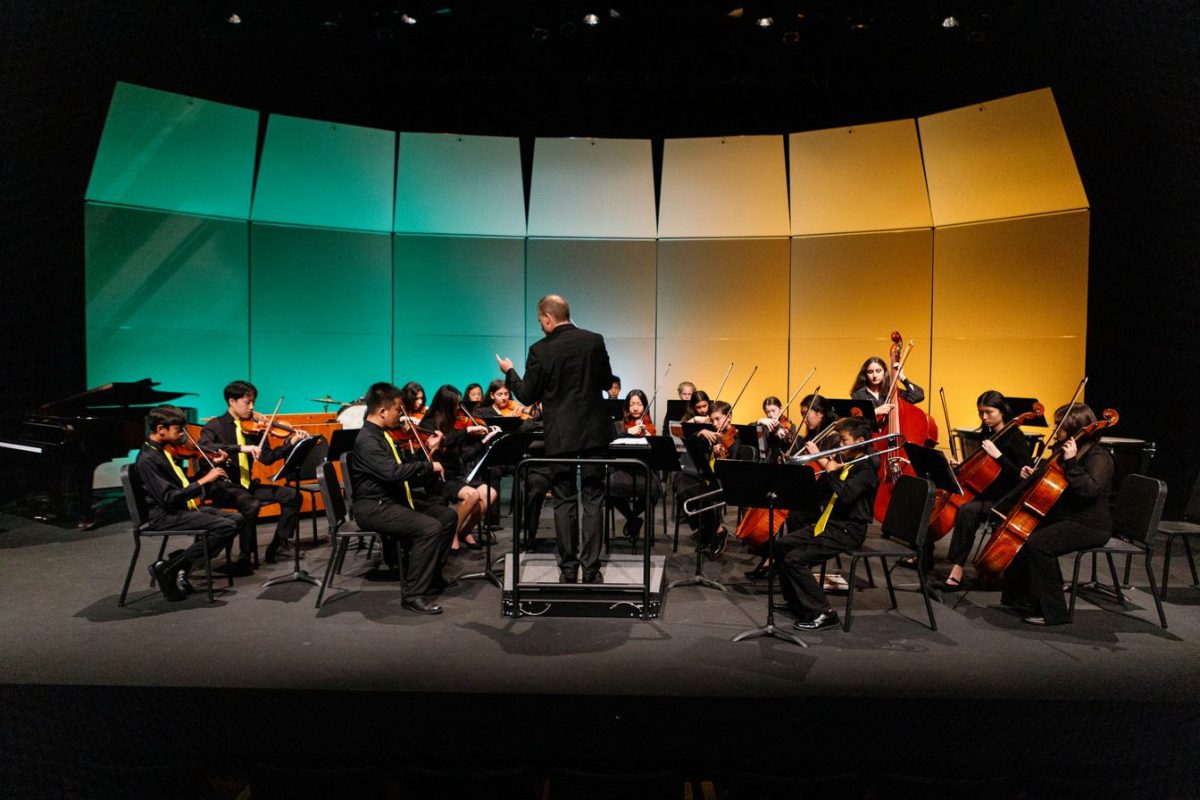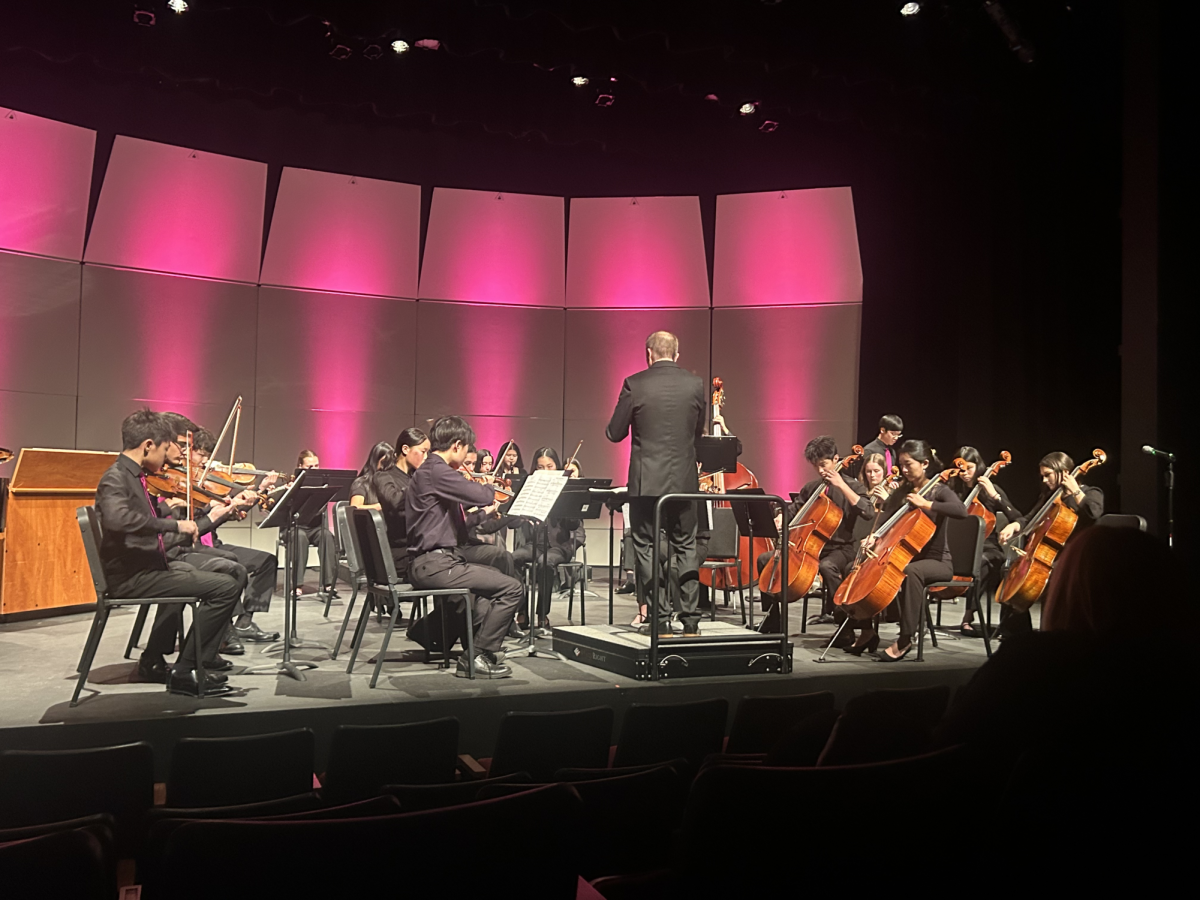If you only realized that Mean Girls (2024) was a movie musical upon hearing the first break into song and dance, would you be upset? This was certainly the case for an Instagram reel uploaded by @x__antisocial_butterfly__x captioned “The collective audible disappointment is crazy,” which displays the reaction of movie watchers to the movie musical released in the U.S. theaters on January 12.
Mean Girls (2024) is not the only recent movie musical, as the December 2023 releases of Wonka and The Color Purple were also of this genre. This trend has been puzzling for some, begging questions about the values and risks of the blended movie musical genre.
“They can be great. They can also be awful,” said Theater Arts Teacher Dr. Kristen Tregar. “Like the Cats one. That was a mistake.” Bella Bravo (‘26) noted that “you’re going to get some backlash from super fans. So you have to be really careful about [adapting a musical into a movie.]”
Music has different roles in theater, film, and their more specific genres — from the use of music and sound to build suspense in an action movie, to a musical theater production’s script being grounded in song. Music is expansive and versatile, but the artform’s use has been called into question when it comes to merging musical theater and cinema.
In a musical, music is a necessary part of the plot’s advancement, said Dr. Tregar. “Part of what makes them defined as musicals is that the songs are integral to the telling of the story. So, we would make a distinction between a musical and a play with music, in which case, generally speaking, the music is there to add to the world of the play, but it’s not necessarily advancing a plot.” This concept can be applied to the movie adaptations of musicals, too.
Music has been a useful tool in both theater and film for the same reasons: “Sound and music is so important in putting us into the minds of the characters and telling us what emotions to feel and when,” Tara Sugavanam (‘23), a Film Production major at Loyola Marymount University, said.
“We can connect through a series of notes to a feeling that we may not be able to just simply describe, or even necessarily show. You can tell some pretty complicated stories through musicals,” Dr. Tregar remarked.
In film, there is a distinction between the types of musical accompaniment in a movie. Tara explained that there are two sound categories: “diegetic” and “non-diegetic” sound.
“Non-diegetic sound refers to the sound that is not heard by the characters in the story world, while diegetic music refers to sound that is heard by the characters in the story world.” A theme song, for example, isn’t diegetic, Tara noted.
“More specifically there are distinctions between the types of diegetic sound — there is external diegetic sound (sounds that can be heard by the characters in that location) and internal diegetic sound (subjective sound that is in the mind of a character),” continued Tara. “It’s interesting to think about the many different layers of sound that go into a film, even a movie musical,” she commented.
The birth of the movie musical genre started when sync sound technology was developed, with non-diegetic sound. From 1927 to 1930, it enabled the film industry’s transition to producing films with the ability to simultaneously record sound and video. According to Tara, “this new film sound technology was a way to get people into theaters during the Depression.” However, “On the production side, many actors struggled when the film industry transitioned to sync sound in the ‘30s and ‘40s. There was controversy that movie musicals were ‘canned theater.’”
Dr. Tregar emphasized this struggle, stating that movies and theater “are fundamentally not the same thing.”
But movie musicals are distanced a step further from movie media too, according to Isabella Combs (‘25). “Movie musicals are in a whole separate genre because they’re just so different. They give a whole different vibe,” she said.
Colin Fagan (‘24), a member of Bishop’s Film Club, said “I think I have a bit more respect for a play. It’s a lot more difficult, I think, to create [a musical] than turning a movie into a musical adaptation.”
Morgan Stoefen (‘24), founder of the Film Club, said, “I think if the songs are creative and they build up the storyline, well, it can be a lot of fun. But I think a lot of times a movie musical… is forced and over exaggerated and sometimes it feels a little bit too commercial.”
Something positive about the rise of the movie musical genre is that movies are far more accessible to the public in price point than theatrical musicals. “To be able to watch [a movie musical] at home on Disney+ is nowhere near the cost of a seat [in a theater]. So, insofar as they make a specific genre accessible to more people, I think that’s really cool,” said Dr. Tregar. An average of $12 a month for an ad-free streaming service or a $20 movie ticket is far cheaper than the average of $148 necessary for a seat at a Broadway musical, according to Statista.
The global reach of film also makes this merge of media attractive. Because musicals first emerged in the U.S. in the 20th century, Dr. Tregar said that “They represent this really specific element of American culture; I think it’s really cool to make it accessible to more people, and not just in the U.S., but worldwide.”
Because film and theater are fundamentally different, when adapting a musical into a movie, several things must change. Dr. Tregar explained that for one, “There is something about quite literally sharing the air with people that are creating this imaginary environment that’s incredibly special. And so when that translates to film, it’s always lost. Something is always inevitably lost.”
For example, the live recording of the stage performance of the Broadway musical Hamilton is now available to stream on Disney+. Although it is at one’s disposal in a movie format, it is not the same as a movie musical as it hasn’t been remade to conform to the movie world.
Additionally, filming a musical like Hamilton still removes agency from the audience. “When the camera gets included, it’s the camera operator or the editors of the film that are making the choice of where the audience has to focus their attention…The viewer, if you will, doesn’t have the kind of choice about where they want to direct their attention in the way that they would in the room with the performers,” Dr. Tregar said.
Musicals are a luxury American artform. Movies are an accessible, well-loved source of artistic entertainment. Who knew the clash would cause such chaos? And, is this spark of controversy a factor that movie producers will take into consideration in the future, avoiding the movie musical genre altogether?









